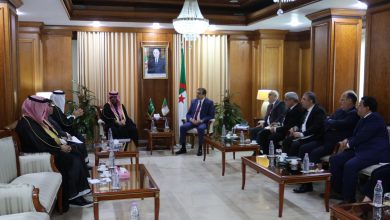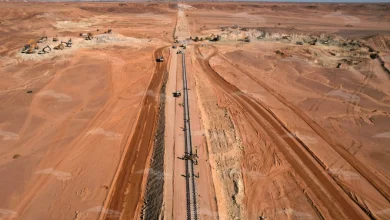Algiers – The Trans-Saharan Highway, one of the largest infrastructure projects in Africa, stands as a prominent example of Algeria’s commitment to realizing African integration and transforming it into a sustainable economic reality.
This highway, connecting Algiers (Algeria) to Lagos (Nigeria), is one of nine major transboundary corridors in Africa. Spanning approximately 10,000 kilometers, it crosses six countries: Algeria, Tunisia, Mali, Niger, Chad, and Nigeria.
Recognizing its geostrategic position as a bridge between the Mediterranean and sub-Saharan Africa, Algeria initiated this transformative project. The Trans-Saharan Highway is one of the oldest transboundary corridors in Africa but also one of the most advanced in terms of implementation, with an overall completion rate exceeding 90%. The Algerian section (2,400 km) has been fully completed.
The project has progressively taken shape through multilateral cooperation facilitated by the Trans-Saharan Highway Liaison Committee, headquartered in Algiers, and supported by African and international organizations such as the African Union, the African Development Bank, and the Islamic Development Bank.
By facilitating the transport of goods, raw materials, and agricultural products, the highway reduces logistical costs, boosts trade, and alleviates the isolation of long-marginalized regions. It also provides a cost-effective land-based alternative to maritime and air trade routes, which are often expensive for landlocked Sahel countries.
The Trans-Saharan Highway plays a pivotal role in realizing the African Continental Free Trade Area (AfCFTA) by providing a physical infrastructure that supports the political ambitions of integration. Serving over 400 million people across an area of approximately 6 million square kilometers, it offers immense potential for enhancing intra-African trade.
The highway also exemplifies Algeria’s pioneering role in promoting joint African initiatives. Algeria’s significant investment in constructing and maintaining its section—the longest of the corridor—reflects its commitment to connecting African economies within a broader vision of creating an integrated, independent, and competitive African economic space capable of rivaling major global economic blocs.
Dubbed the “African Unity Highway,” this infrastructure stands as a testament to the continent’s ability to collaboratively execute transformative projects, with Algeria at the forefront.
Algeria’s ambitions are further reflected in complementary projects under construction, such as the Tindouf-Zouérat road (840 km), which will connect the Trans-Saharan Highway to Mauritania, opening a new gateway to West Africa.
Despite challenges, particularly the need to modernize certain sections, the project carries strong symbolic weight. The Trans-Saharan Highway is a reality, embodying Algeria’s strategic choice to decisively engage with its continental depth.
This commitment will be reaffirmed at the fourth edition of the African Intra-Trade Fair, scheduled to be held in Algeria from September 4 to 10, 2025.




